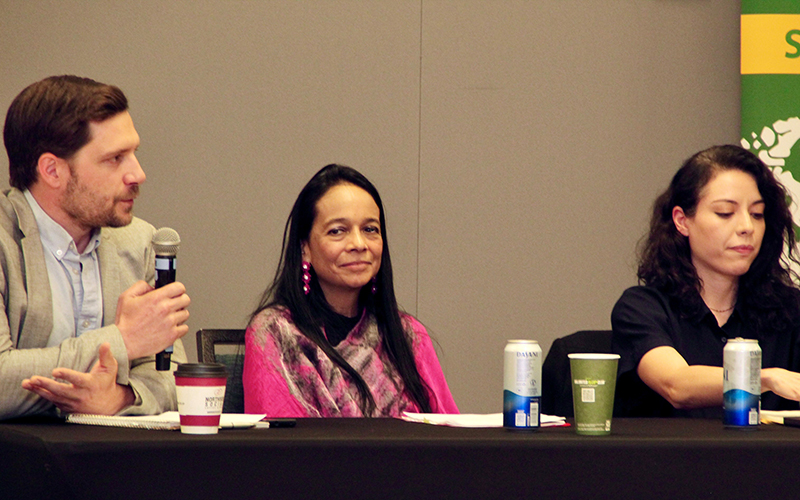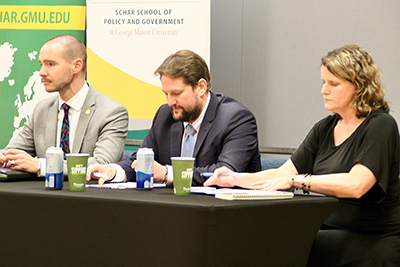In This Story


In a recent panel discussion at the Schar School of Policy and Government focused on the underexplored security challenges in the Latin American and Caribbean regions, four experts gathered to examine the ongoing security cooperation in the Americas amidst significant regional risks.
“The Americas at Risk: U.S. Security Partnership in a Fractured Neighborhood,” sponsored by the Schar School’s Center for Security Policy Studies, aimed to elevate these issues within policy circles in Washington and highlighted the disparity in attention given to the region compared to areas like China, Russia, or the Middle East, said Professor Guadalupe Correa-Cabrera, who convened the panel.
The panel was moderated by Schar School assistant professor Philip Martin and included Jazmine Ulloa of the New York Times; Congressional Research Service Latin American Affairs Specialist Clare Ribando Seelke; Director of the William J. Perry Center for Hemispheric Defense Studies Paul Angelo; and Associate Professor at the U.S. Naval Academy and author John Polga-Hecimovich.
According to the panelists, many regions within the hemisphere are grappling with security difficulties and extremely high levels of political polarization. These challenges, often transnational in nature, require increased collaboration among the countries in the hemisphere.
There is a pressing need for heightened awareness and cooperation, Correa-Cabrera said.
“We need to create conscience that this is a crucial subject. We need to understand what happens in our neighborhood and collaborate effectively with our neighbors to address the main security challenges in the region,” she said. “The complexity of the global security environment only adds layers to these challenges, making it imperative for closer and more effective collaboration.”
The high level of interest suggests a growing awareness and concern about regional security issues, signaling a potential shift toward more robust and informed dialogues in the future.
